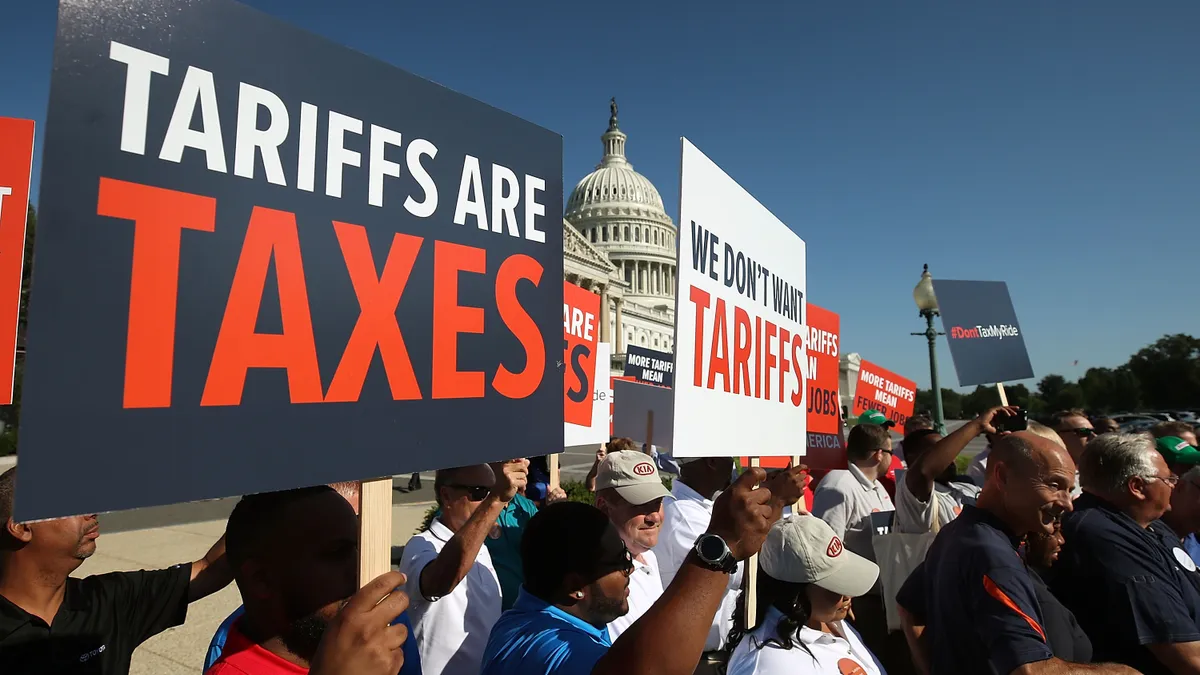Dive Brief:
- The Biden administration is asking for the public to weigh in on more than $300 billion worth of tariffs on imports from China as it reviews their effectiveness.
- The U.S. Trade Representative said Wednesday it is soliciting input on how Section 301 tariffs have impacted supply chain resilience, domestic manufacturing and technological innovation, among other things. Stakeholders will be able to comment Nov. 15 through Jan. 17, 2023, via an electronic portal.
- Tariffs will remain in place as the USTR conducts its review. The majority of the duties, imposed by former President Donald Trump beginning in 2018, were scheduled to expire in late August.
Dive Insight:
President Joe Biden has remained largely silent on whether he will keep Section 301 tariffs in place, even as the administration faces rising pressure to ease duties amid inflation and other supply chain disruptions.
White House Press Secretary Karine Jean-Pierre said in June that the administration was still working to “align these haphazard tariffs and our priorities to safeguard the interest of our workers and critical industries.”
“We have said from the beginning some Trump tariffs were irresponsible and do not advance our economic or national security and instead raise costs for families and businesses,” she said.
The USTR has provided tariff relief on a case-by-case basis, exempting certain imports based on factors such as whether the company can import the same product from a country other than China. The agency said in March it would reinstate or extend 352 of the 549 exempted products from tariffs, months after asking for input on whether it should reopen the process by which companies could apply for exclusions.
Forty-one senators on both sides of the aisle pressed U.S. Trade Representative Katherine Tai in February to expand the exclusion process for tariffs, writing in a letter that the move would ease the financial burden on businesses and give companies more time to “move supply chains out of China.”
The letter also noted that the current process is too narrow and “picks winners and losers among businesses.” Of the 52,746 exemption requests the USTR received through January 2020, just 13% were granted according to a Congressional Research Service report.
Wide-ranging tariffs on consumer goods such as apparel and electronic goods have raised costs and prompted major companies to rethink their sourcing relationships. Thousands of companies have challenged tariffs before the World Trade Organization’s Court of International Trade, and the court ruled in April that the USTR failed to provide adequate justification on how it “arrived at its decision to raise tariffs on particular products despite the numerous public comments contesting the appropriateness.”
Still, the court refused to overturn the tariffs, noting the potential “disruptive consequences.”
“For now, the court declines to try to unscramble this egg,” the ruling read.













